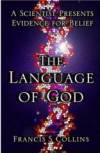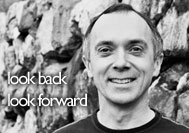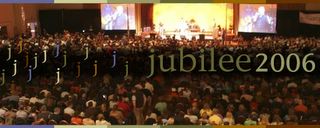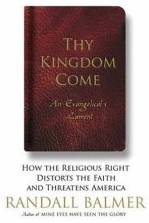Emerging Christian Interaction with Political Ideologies Part 2The first part of David T. Koyzis’ book
Political Visions & Illusions: A Survey & Christian Critique of Contemporary Ideologies (InterVarsity Press, 2003) deals with six political ideologies one at a time, then in the final three chapters he offers a biblical Christian response through a Creation/Fall/Redemption worldview, looks at the societal and political teaching of two historic Christian approaches: Roman Catholicism and Neocalvinism, and offers a theology on Justice.
The first ideology Koyzis tackles is one very familiar to the readers of this blog, for most of us live under this political ideology in the West (especially here in North America). It’s called “Liberalism” by political scientists, and what they mean by that is not the pop definition of “liberal” in American political debates (as opposed to Republican Conservativism) but
an over-arching political ideology that has a commitment to the individual. The American political system has the individual at it's heart, and the political debates deal with the
differing views on how to give individuals rights and equal opportunity.
“If a George W. Bush and an Al Gore seem to be implacable foes in the political arena, it is because both claim to represent the more authentic legacy of the same ideology.”
In a larger historic sense, both Bush and Gore are liberals of different stripes, sharing the same fundamental assumptions concerning the nature of humanity and of the political system. The debate in American politics is rarely between liberal ideology and other political ideologies but of different kinds of liberals: the classical or traditional liberals (what we might call the “conservatives”) and the reform or revisionist liberals (what we usually actually call “liberal” or, more recently “progressive”).
As Koyzis points out,
“Even the abortion debate, in which Christians are so deeply involved, is usually framed in terms of the conflicting rights of individuals, which is a typical liberal way of approaching the issue. By contrast one could argue either side of the abortion issue on the basis of its impact on the larger society or on such basic human communities as marriage and the family. Such a communitarian approach is not entirely foreign to the North American scene, but individualistic arguments are more accessible and persuasive within our political culture.”
Let’s look at how the American experiment with Liberalism as the basic presumption of our political system looks and acts like a religion.
The Liberal Creed
Liberalism starts and ends with a fundamental belief in
human autonomy—that the
individual is the primary concern. In Liberalism,
“everyone possesses property in their own person and must therefore be free to govern themselves in accordance with their own choices, provided these choices do not infringe in the equal right of others to do the same.” The purpose of political authority is to enforce accountability between individuals when this liberal concept of individuality is transgressed.
This creed flows from Enlightenment philosophy (from Epicurus’ idea that individuals should seek their own pleasure over pain, to Rene Descartes’ reduction of things to their component parts in order to understand them rationally (thus the emphasis on the individual as opposed to a communal understanding of society), to John Locke’s desire to structure society based on Reason (the presumed "ultimate and shared" arbiter of truth) which mandates that “no one ought to harm another in his Life, Liberty, or Possessions.”
The Liberal Creed says that a civil commonwealth must be established in order to create a “social contract” between individuals who are seeking their own freedom of choice. This is the purpose of government—to be a limited institution meant to free individuals to pursue whatever they please unrestrained by the dictates of others while ensuring personal security and enjoyment of property. The government is meant to simply enforce the “rules of the game” so that individuals can seek their own self-chosen ends.
The Liberal Idea of Sin All ideologies, according to Koyzis, are based on a gnostic view of reality that ascribes evil to something in God’s creation as well as searching for something else in creation to effect salvation from that evil.
For those of us who live in the United States, we should easily identify the “evil” or “sin” that our country consistently identifies in the world. Just think about the current war in Iraq or the cold war of the 20th century.
Evil, for a liberal political ideology, is located in
any authority that threatens any individual’s own will, and also in
any collectivity or community that claims authority independent of the wills of its component members.
The Liberal Way of SalvationSalvation, then, is found in
freedom. The implicit assumption of liberalism (that is, American political theory) is that we are progressively saved when claims of community and external authority are
diminished and the authority of individual will (that is what we call “liberty”) is
maximized. Libertarianism is the pinnacle of this line of thinking: we are best off when government has as little power as possible and when individuals can pursue their self-interest to the maximum extent (this, afterall, is the philosophy of Ayn Rand, one of the most influential people in modern American economic and political thought).
The Politics of Individualism
Not only are Americans convinced that the politics of individualism is best for us, but we are convinced that it is best for the entire world. This is the reason that is often given for going to war: We want to bring “democracy” to other nations (read: we think that individual freedom trumps everything else).
Koyzis makes this shocking observation:
“That human beings are created for life in community is a truth liberalism has difficulty comprehending.”technorati:
politics,
emerging church
 There’s a great conversation going on over at Scot McKnight’s Jesus Creed about the Scot’s post stems from a very intriguing article in the New York Times about Greg Boyd’s church in St. Paul and Randall Balmer’s new book Thy Kingdom Come, An Evangelical's Lament: How the Religious Right Distorts the Faith and Threatens America.
There’s a great conversation going on over at Scot McKnight’s Jesus Creed about the Scot’s post stems from a very intriguing article in the New York Times about Greg Boyd’s church in St. Paul and Randall Balmer’s new book Thy Kingdom Come, An Evangelical's Lament: How the Religious Right Distorts the Faith and Threatens America.
 The first ideology that David T. Koyzis explains in his book
The first ideology that David T. Koyzis explains in his book 
 Also in the same week, I watched yet another leading evangelical scientist,
Also in the same week, I watched yet another leading evangelical scientist,  Collins has just released a new book called
Collins has just released a new book called  Bill Moyers’ new PBS series, "
Bill Moyers’ new PBS series, " The current issue of The Princeton Theological Review features a "
The current issue of The Princeton Theological Review features a "









